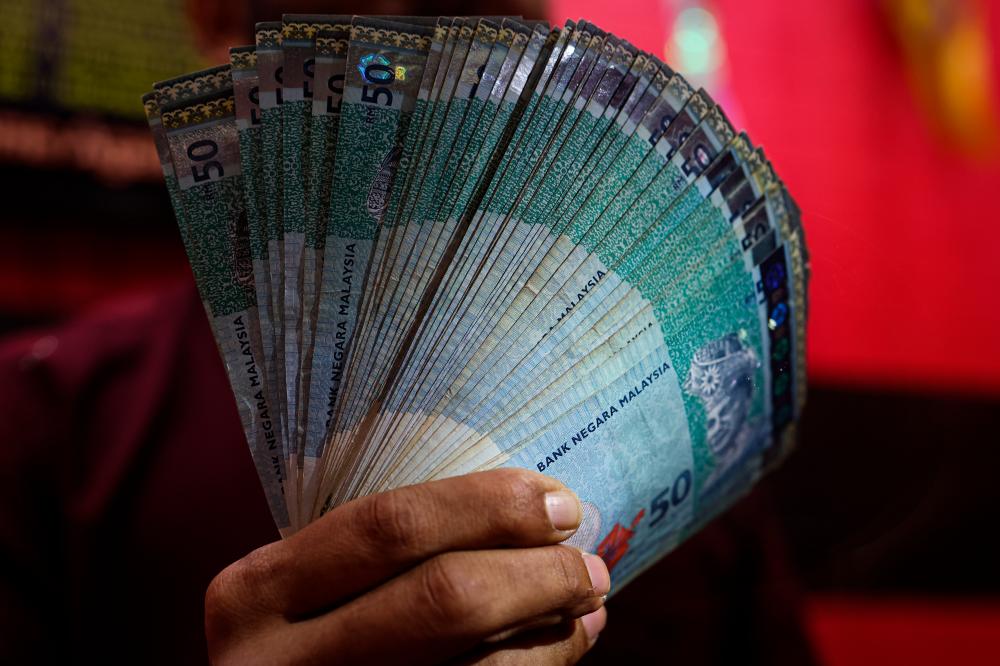KUALA LUMPUR: The current weakness of the ringgit against the US dollar cannot be avoided due to the direct impact of the restrictive monetary policy of the United States (US), but how Malaysia uses its fiscal tools can strengthen the currency in the long term, according to Universiti Utara Malaysia (UUM) economics senior lecturer Muhammad Ridhuan Bos Abdullah.
He said the four effects of US monetary policy are capital outflows, high interest rates, a stronger US dollar, and the ringgit downtrend.
“We have to accept that this is a direct and unavoidable effect, but what is more important at this point is that the government needs to decide whether to choose fiscal restriction or expansion to strengthen the ringgit and the country’s economy as a whole,“ he told Bernama.
His Majesty Sultan Ibrahim, King of Malaysia, said the government should take a proactive approach to implementing the reform agenda to strengthen the country's competitiveness.
In the opening ceremony of the first meeting of the third session of the 15th parliament recently, Sultan Ibrahim said this is important to ensure Malaysia emerges as a sustainable economy in line with current needs.
“The government also needs to provide attractive incentives and facilitate all matters through efficient governance and policies made at the federal level,“ Sultan Ibrahim said.
Muhammad Ridhuan said from the academic aspect, the government is seen to have a choice in using “expenditure-reducing or expenditure-switching” policies. “Expenditure-reducing may not be encouraged because it ends up causing inflation and unemployment while expenditure-switching uses instruments such as tariffs and quotas, which have benefits but at the same time, it has an impact on increasing the cost of living,“ he explained.
He was commenting on Prime Minister Datuk Seri Anwar Ibrahim's statement regarding the fall in the value of the ringgit and the need to take a balanced approach to maintain investor confidence.
Earlier, Anwar stated that the proposal given when the value of the ringgit depreciated was to raise the overnight policy rate (OPR). However, this action could cause interest rates for vehicle loans, home loans, and loans to small traders to increase.
Muhammad Ridhuan noted that the country's interest rate, which is currently at 3 per cent, is considered neutral and cannot help increase production.
“If Bank Negara Malaysia is still maintaining the OPR at a rate that is considered to accommodate growth, then the government needs to look at the fiscal policy in determining whether the money sector is causing disturbances or the expenditure sector.
“Malaysia’s trading partners reduced the size of aggregate demand and resulted in the country’s exports being affected. However, we expect this scenario to be temporary and efforts are being carried out for the monetary and fiscal policies to improve the disturbances,“ he explained.
On de-dollarisation and Malaysia's efforts to reduce dependence on the US dollar, Muhammad Ridhuan said the move is for the long term since the main trading currency in Malaysia is still the dollar. -Bernama














